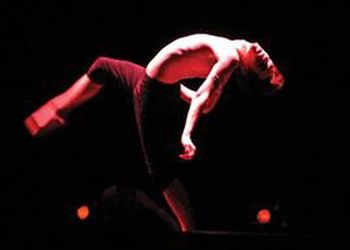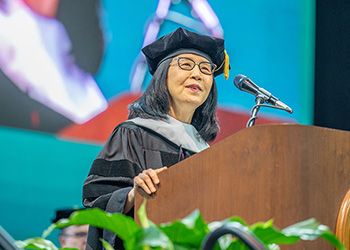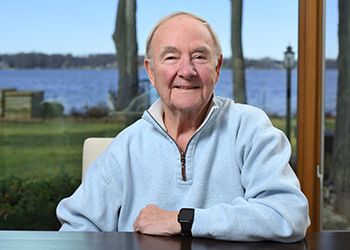A gift of dance
Rising contemporary dance star, Billy Bell, brought to campus as an RCAH artist-in-residence
May 22, 2012
“…when I considered the benefits, I was determined to make the pieces come together.”
--Lauren Harris, professor
Psychology Professor Lauren Harris’s students are well aware of his appreciation for the arts. And he often draws upon the arts, especially music and dance, to illustrate developmental psychological principles. So, one day, after mentioning the television show “So You Think You Can Dance,” a student asked whether he had a favorite dancer from the show.
Hands down, student and professor agreed that Billy Bell was their stand-out choice. When the student went on to say how wonderful it would be if the dancer could visit MSU, she planted a seed.
Impulsively, Lauren wrote to ask Billy whether he would like to come for a visit, and then panicked a little when he received a positive response.
“I thought ‘what have I done? I have no authority to make such an offer’” Lauren says. “But, when I considered the benefits, I was determined to make the pieces come together.”
Billy’s qualifications as a rising contemporary dance star, choreographer, and founder of an up-and-coming New York dance company, made him a perfect match for the artist-in-residency program in the Residential College in the Arts and Humanities. Dance instructors and RCAH adjunct professors Diane Newman and Beth Post saw the potential for the young artist to have an impact. The only hurdle was funding.
And that’s where Lauren’s generosity made the difference. Last year, Lauren took advantage of the 2011 IRA charitable rollover provision to make a $100,000 cash gift to MSU. He designated a portion to specifically fund bringing Billy to campus, along with three members of his company.
Thanks to Lauren’s gift and to Diane and Beth’s tireless efforts in planning every detail of the residency, and with the support of Stephen Esquith, Dean of the RCAH, all the pieces came together. In April, Billy Bell and his dancers visited classes, including Lauren’s developmental psychology class, conducted campus and community workshops, and held open rehearsals for two major new choreographic works, which they presented in a thrilling performance at Fairchild Theatre. The dancers also helped RCAH students choreograph a unique performance of their own.
“He’s a natural teacher -- open, engaged, good-humored,” says Lauren of Billy. “My students asked many questions, and Billy had insightful answers for every one—about the roots of his interest in dance, his technical and artistic training, whether there was a “critical period” for acquiring the requisite skills, the nature of the creative process in dance and choreography, how he came to found his own company, and the business side of dance (working on both coasts, Billy drew interesting contrasts between L.A. and New York).”
Lauren’s generosity to MSU is longstanding. His giving reflects a passion for the arts with an overriding desire to expand learning opportunities. The remainder of his recent gift was split among six endowments he had already begun. Two of them support visiting artist programs in the College of Arts and Letters and the College of Music. The others support MSU Hillel, Jewish Studies, MSU Libraries, and Psychology. All along, Lauren also had been thinking about organizing a conference for psychologists and artists to come together to discuss their common interests, to help bridge what C.P. Snow called “The Two Cultures.” Part of the Psychology endowment will be to support a series of these conferences. One certainly should focus on dance, so, with luck, Billy will soon pay a return visit to MSU.
Lauren has a ready answer for those who wonder why scientists should be passionate about the arts. “What can the arts teach us?,” he asks, and, quoting the great biologist Edward O. Wilson, answers, “Everything!”




